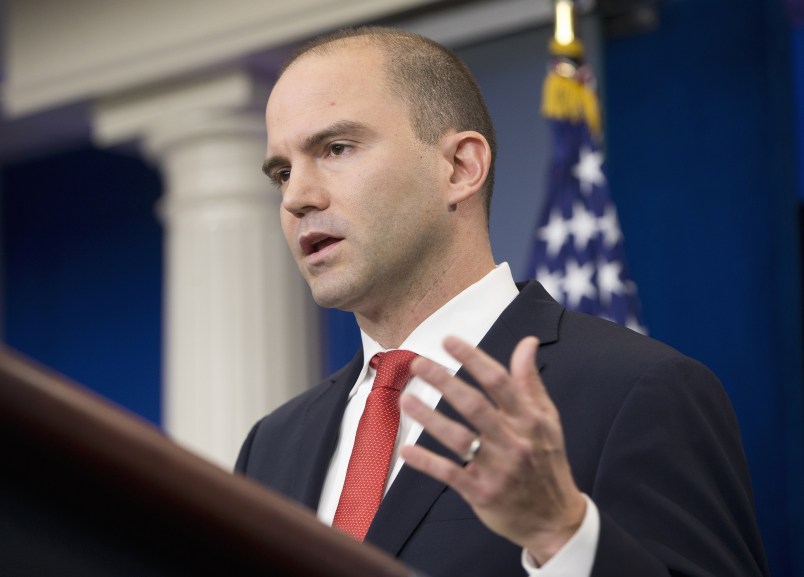One of President Barack Obama’s top advisers on national security offered up a tepid mea culpa late Sunday after suggesting in a New York Times Magazine profile that it was easy to sell the White House’s narrative on the Iran nuclear deal to inexperienced reporters.
“Every press corps that I interacted with vetted that deal as extensively as any other foreign policy initiative of the presidency,” Ben Rhodes wrote in a post on Medium. “A review of the press from that period will find plenty of tough journalism and scrutiny.”
Rhodes came under fire last week after recounting to the New York Times Magazine’s David Samuels how he and the rest of the White House team tasked with marketing the deal to the American public crafted a careful, easily swallowed “story.” That narrative hinged on the 2013 election of moderate Iranian President Hassan Rouhani, which allowed the White House to frame the deal, which had been in the works since the start of Obama’s first term, as a direct response to Iran’s new policy of “openness.”
Rhodes also told Samuels that what he felt was a lack of foreign policy knowledge on the part of many members of the Washington press corps helped the White House use their coverage as a tool to promote its narrative on the Iran deal.
“We created an echo chamber,” he told Samuels. “They were saying things that validated what we had given them to say.”
Rhodes’ criticism of the press was even more stark in a quote describing his general approach towards working with reporters.
“All these newspapers used to have foreign bureaus. Now they don’t. They call us to explain to them what’s happening in Moscow and Cairo. Most of the outlets are reporting on world events from Washington,” he said in the profile. “The average reporter we talk to is 27 years old, and their only reporting experience consists of being around political campaigns. That’s a sea change. They literally know nothing.”
In his Medium post, Rhodes struck a more conciliatory note and praised the work of diplomats and experts who negotiated the terms of the Iran deal. He noted that opponents of the deal made their case well known and that his team didn’t hide their efforts to gin up enthusiasm for it.
“This effort to get information out with fact sheets, graphics, briefings, and social media was no secret — it was well reported on at the time,” Rhodes wrote. “Of course the objective of that kind of effort is to build as much public support as you can — that’s a function of White House communications.”







